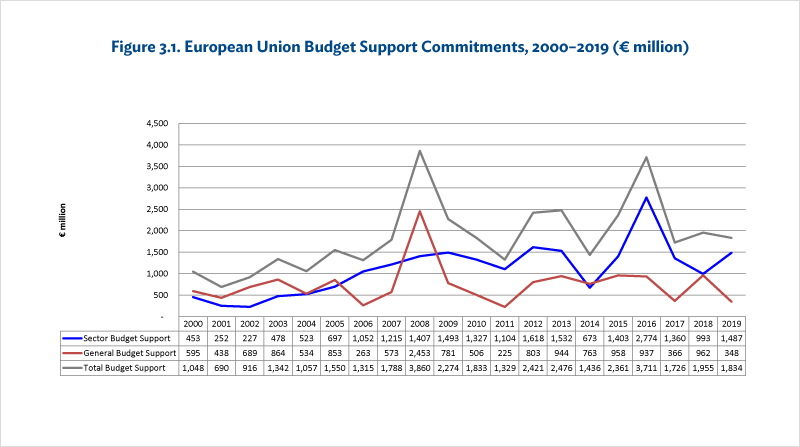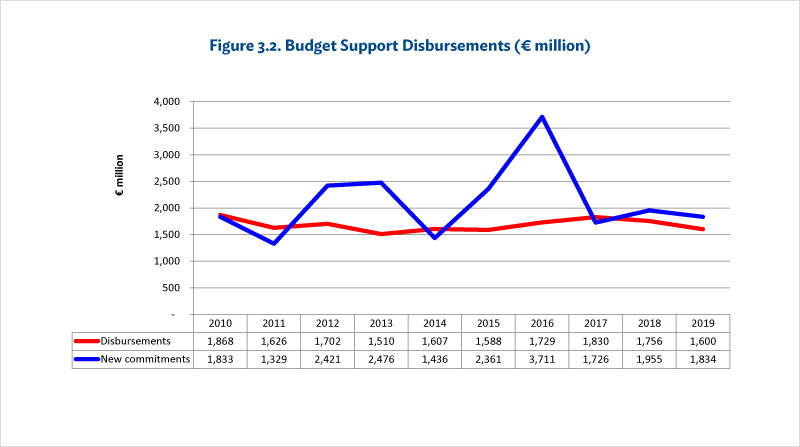EU budget support is provided as sector budget support (SRPCs) and as general budget support (which includes both SDG-Cs and SRBCs). Between 2000 and 2005, general budget support was the main type of budget support provided by the EU, representing 60% of the total budget support value (Figure 3.1). Over time, sector budget support has increased its share.

Source: European Commission, Unit E1 ‘Macro-economic Analysis, Fiscal Policies and Budget Support’
Sector budget support has been increasingly used by the EU since 2006, due both to the decreased use of general budget support (linked to the requirement that countries commit to fundamental values to be eligible for such support introduced in 2012), and to the introduction of sector budget support to the Western Balkans in 2015. Sector budget support represented 67% of all budget support provided over the period 2014–2019. In 2020, the EU increased its use of state resilience and building contracts in response to the COVID-19 pandemic, including in the Western Balkans, where hitherto only sector budget support could be provided.
Budget support is an effective and flexible instrument for many situations, including emergencies, which require a fast-track response to help stabilise a situation and to ensure the crisis does not deteriorate further at the expense of the population. New budget support commitments amounted to €3.86 billion in 2008 and remained well above average in 2009 and 2010. This partly reflects the EU’s programming cycle (preparations for new budget support programs launched in 2007 started being approved by the end of 2008 and the beginning of 2009); partly the introduction of a few very large Millennium Development Goals contracts (the precursor of SDG-Cs); and partly the EU’s reaction to the 2007–2009 global financial crisis, which resulted in the provision of budget support to countries suffering from economic collapse and/or soaring food prices.

EU budget support disbursements (Figure 3.2) represented, on average, €1.68 billion a year over the period 2010–2019; 15% of EU total official development assistance (ODA) per year, or an estimated average of 29% of country programmable aid disbursements per year.
Since 2012, a new type of fast-track contract, the state building contract (SBC) has been used to support countries facing a crisis, including natural disasters or health pandemics. This type of support to countries in a situation of fragility or transition has overtaken SDG-Cs as general budget support. SBCs were introduced in 2012 and amounted to €180 million in commitments, or 21% of general budget support in 2012. Since 2017, they have been known as state and resilience building contracts (SRBCs). By 2019 they represented 88% of all new general budget support. Since 2012, just under €4 billion has been provided to fragile states in the form of SBCs or SRBCs.
